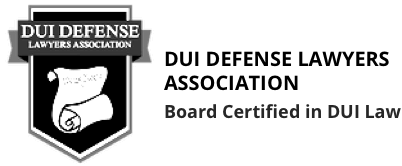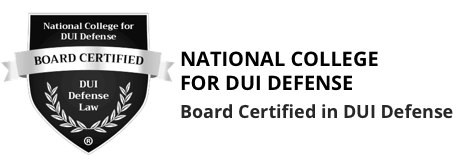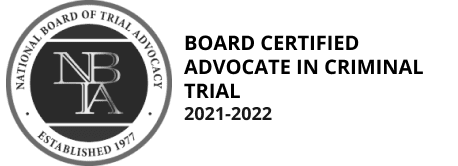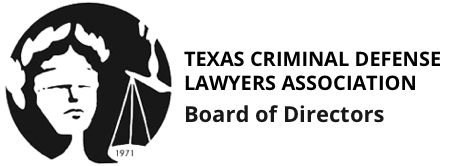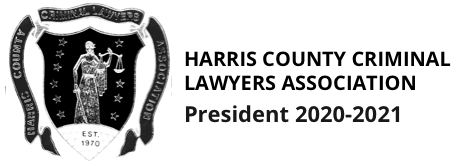Simply put, Mark Thiessen is a criminal defense all-star. You can feel the difference the second you step in the courtroom with Mark by your side. The time he has taken to build relationships and earn respect is clear.
Adam H, Google Review
View More Testimonials
Many people equate DWI with drunk driving and believe that the only way to get arrested for Driving While Intoxicated is to be pulled over with a BAC of over .08 — but DWI does not always involve alcohol, and drug related DWI comes with the same penalties as a DWI that you would get for drunk driving.
Have you ever heard that you can’t get in trouble for driving while you’re high because the police have no way to prove it? While that just isn’t true, there are some meaningful distinctions to be made between DWI involving alcohol and drug related DWI, some of which we will detail here.
If you or a loved one has been arrested for a DWI on drugs, you need to move quickly. Texas is tough on DWI and even tougher on drugs. The prosecution is building their case against you, and every moment that you don’t have an experienced drug related DWI lawyer building your defense is a moment wasted. Call Thiessen Law Firm at (713) 864-9000 to speak with our award-winning DWI attorneys today.
What is a DWI in Texas?
According to Texas Penal Code 49.04, Driving While Intoxicated takes place when a person:
- Has a blood alcohol content of .08% or higher or
- No longer has the normal use of their mental or physical faculties by reason of the introduction of alcohol, a controlled substance, a drug, a dangerous drug, a combination of two or more of those substances, or any other substance into the body.
It is entirely possible to be arrested and convicted of DWI for driving under the influence of drugs or controlled substances, but how does it work? How do the police prove intoxication without the use of a BAC test?
Testing for drug related DWIs in Texas
Because there is neither a test to measure the level of toxicity or exposure of most drugs nor a standard set for the level of controlled substances that would result in intoxication, the police use a 12-step process called the Drug Recognition Expert Protocol (DRE) to identify drug intoxication.
- BAC Tests. Before the DRE is requested, the arresting officer will administer a BAC test to determine if blood alcohol content can explain the perceived intoxication of the subject.
- Interview. The DRE will interview the arresting officer to learn the details of the arrest and interactions with the subject.
- Preliminary Exam (First Pulse). The DRE takes the subject’s pulse and conducts an initial interview.
- Eye Exam. The DRE examines the eyes of the subject, performing several tests, including the Horizontal Gaze Nystagmus Test.
- Divided Attention Psychophysical Tests. The DRE will perform a series of field sobriety tests, which often include the One Leg Stand Test as well as the Walk and Turn Test.
- Vital Signs (Second Pulse). The DRE will take the subject’s pulse again.
- Dark Room Exams. The DRE will again examine the eyes of the subject, this time using a pupilometer to determine the dilation or constriction of the pupils.
- Muscle Tone Exam. The DRE will look for muscles that have tightened or loosened.
- Injection Site Check (Third Pulse). The DRE will check for injection sites from recent drug use as well as take the subject’s pulse for a third and final time.
- Statement. Finally, the DRE will take a statement from the subject and ask them to tell their side of the story.
- Evaluator Analysis. The DRE will form an opinion about the intoxication of the subject as well as provide an analysis of the possible substances they have ingested.
- Toxicological Exam. The DRE will then request that the subject go through chemical testing to determine if they have drugs in their system.
If you know anything about how we feel about standardized field sobriety tests (spoiler: they’re bogus), then you can assume we’ve got some issues with the DRE. This system is famously unreliable and is engineered to allow the police to more easily put people in jail, rather than accurately determine intoxication.
What kind of drugs other than alcohol can affect your driving ability?
Drugs other than alcohol that are often involved in drug related DWI include:
- Marijuana
- Cocaine
- Methamphetamine
- Heroin
- Hydrocodone, oxycodone, oxycontin, morphine, and other opiates
- Ecstasy or MDMA
- Xanax
- LSD or psilocybin mushrooms
As you can see, not all drug related DWIs involve illegal drugs, and they can very often be caused by medications. Antidepressants, anxiety medication, or muscle relaxers might be just as liable to impact your ability to drive as even the strongest controlled substance.
If you’re pulled over do not tell the officer anything (even if the drugs that you’ve taken are prescription drugs). Take the breath test if it is offered because if you decline you will be asked to consent to other chemical testing. Then, call your lawyer.
Continue reading: What prescription drugs can you not drive on?
Penalties for drug related DWI in Texas
What’s it called when you’re driving under the influence of drugs? It’s still called a DWI and, as the chart below details, the severity of that DWI will depend on the circumstances of the offense committed.
| Offense | Charge | License Suspension | Fines | Jail Time |
| DWI First Offense | Class B Misdemeanor | 90 days – 1 year | Up to $2,000 | 3 days – 180 days |
| DWI First Offense, BAC greater than .15 | Class A Misdemeanor | 180 days – 2 years | Up to $4,000 | 30 days – 1 year |
| DWI Second Offense | Class A Misdemeanor | 180 days – 2 years | Up to $4,000 | 30 days – 1 year |
| DWI Third or Fourth Offense | Third Degree Felony | 180 days – 2 years | Up to $10,000 | 2 – 10 years |
| DWI with a Child Passenger | State Jail Felony | Up to 180 days | Up to $10,000 | 180 days – 2 years |
| Intoxication Assault | Third Degree Felony | 180 days – 2 years | Up to $10,000 | 2 – 10 years |
| Intoxication Manslaughter | Second Degree Felony | 180 days – 2 years | Up to $10,000 | 2 – 20 years |
As a rule, the consequences for repeat and felony DWI will be much harsher than those for misdemeanor or first-offense DWIs in Texas. Another important factor to consider is that those facing charges for drug related DWI often face charges for possession of the drugs that they are on.
Whether you only had a personal amount of marijuana in the car or were charged with possession of a controlled substance in Texas, you’re going to need a criminal defense attorney that does a lot more than DWI — and preferably one who knows how to get a possession charge dropped.
Mark Thiessen is the only lawyer in America who is quadruple board certified in:
- Criminal Law by the Texas Board of Legal Specialization
- DUI Defense by the National College for DUI Defense as approved through the American Bar Association
- DUI Law by the DUI Defense Lawyers Association.
- Board Certified Advocate Criminal Trial Law by the NBTA Foundation
If you’ve been charged with a crime and you need a decorated, dedicated criminal lawyer to fight for your freedom, you need to call Mark Thiessen of Thiessen Law Firm.
Hire a winning drug related DWI lawyer in Texas
If you or a loved one was pulled over and charged with drug related DWI for allegedly being under the influence of prescription drugs or a controlled substance, do not give up the fight. Law enforcement agencies are much less capable of accurately determining intoxication than you would expect, and they often use dubious tactics and outdated science to get the results that they want.
The good news? Charges for drug related DWI are beatable, and your future is worth the fight. If you want the best chance at beating your charge, you’ll need to hire the best DWI lawyer in Texas.
Mark Thiessen has secured hundreds of Not Guilty verdicts for clients in high-stakes, complex cases. If you have a case that you cannot afford to lose, call Thiessen Law Firm today at (713) 864-9000 or schedule an appointment online for a free consultation.
NOTE: This information is not legal advice. It is provided for educational use only. If you need legal advice regarding a DWI offense in the State of Texas, please contact Mark Thiessen at 713-864-9000, or request a free case evaluation.

